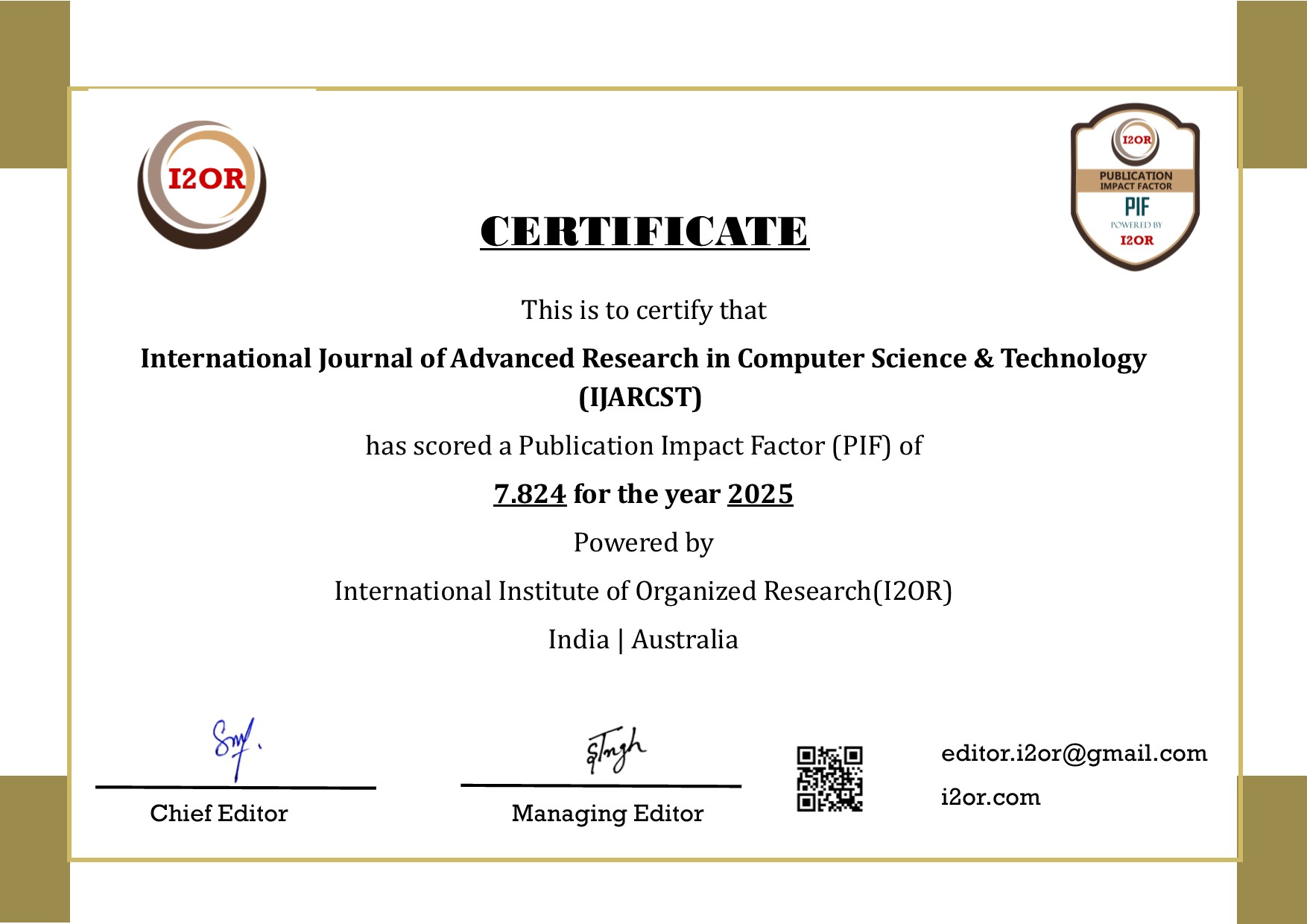Blockchain-Enabled Security Frameworks for Cloud and Mobile Networks
DOI:
https://doi.org/10.15662/IJARCST.2019.0204001Keywords:
Blockchain, Cloud Security, Mobile Networks, Decentralized Security, Data Integrity, Access Control, Authentication, Consensus Algorithms, Mobile Cloud ComputingAbstract
The rapid expansion of cloud computing and mobile networks has introduced numerous security challenges related to data privacy, integrity, and trust management. Traditional centralized security mechanisms are often inadequate in addressing these issues due to their susceptibility to single points of failure and limited transparency. Blockchain technology, known for its decentralized, immutable, and transparent ledger system, has emerged as a promising solution to enhance security frameworks in cloud and mobile environments. This paper explores blockchain-enabled security frameworks designed to secure cloud infrastructures and mobile networks. It investigates how blockchain’s decentralized architecture can mitigate risks such as data breaches, unauthorized access, and identity theft by enabling secure authentication, access control, and data provenance. The study reviews existing frameworks that integrate blockchain with cloud and mobile technologies, highlighting their architecture, cryptographic mechanisms, and consensus algorithms. Furthermore, the paper examines the challenges of implementing blockchain solutions in resource-constrained mobile devices and scalable cloud platforms, focusing on issues such as latency, scalability, and energy consumption. A case study approach demonstrates the application of blockchain-enabled frameworks in securing mobile cloud services, illustrating improvements in data integrity verification and user authentication. Key findings reveal that while blockchain introduces robustness and transparency, trade-offs exist in performance and complexity. The paper concludes by identifying future research directions to optimize blockchain integration, including lightweight consensus protocols and hybrid architectures combining blockchain with traditional security methods. This research contributes to the growing body of knowledge on blockchain’s role in enhancing security for cloud and mobile ecosystems, offering practical insights for academia and industry aiming to develop resilient, decentralized security frameworks.
References
1. Nakamoto, S. (2008). Bitcoin: A Peer-to-Peer Electronic Cash System.
2. Cachin, C. (2016). Architecture of the Hyperledger Blockchain Fabric. Workshop on Distributed Cryptocurrencies and Consensus Ledgers.
3. Zheng, Z., Xie, S., Dai, H., Chen, X., & Wang, H. (2017). An Overview of Blockchain Technology: Architecture, Consensus, and Future Trends. 2017 IEEE International Congress on Big Data.
4. Dorri, A., Kanhere, S. S., & Jurdak, R. (2017). Blockchain in Internet of Things: Challenges and Solutions. arXiv preprint arXiv:1608.05187.
5. Ali, M., Vecchio, M., Pincheira, M., & Roman, R. (2016). Security in Cloud Computing: Opportunities and Challenges. International Journal of Cloud Computing.
6. Xu, X., Weber, I., & Staples, M. (2017). Architecture for Blockchain Applications. Springer.
7. Lemieux, V. L. (2016). Trusting Records: Is Blockchain Technology the Answer? Records Management Journal, 26(2), 110-139.
8. Fan, K., Ren, K., Li, H., & Yang, Y. (2017). Secure Data Sharing and Searching in Mobile Cloud Computing. IEEE Transactions on Cloud Computing, 5(4), 704-716.





